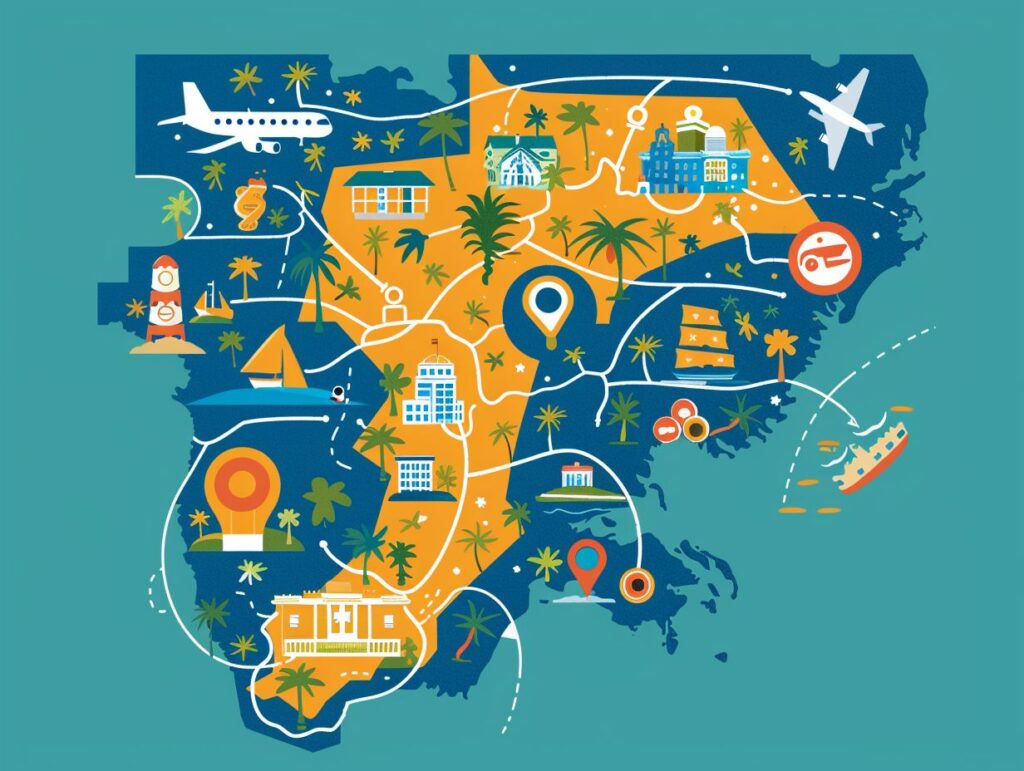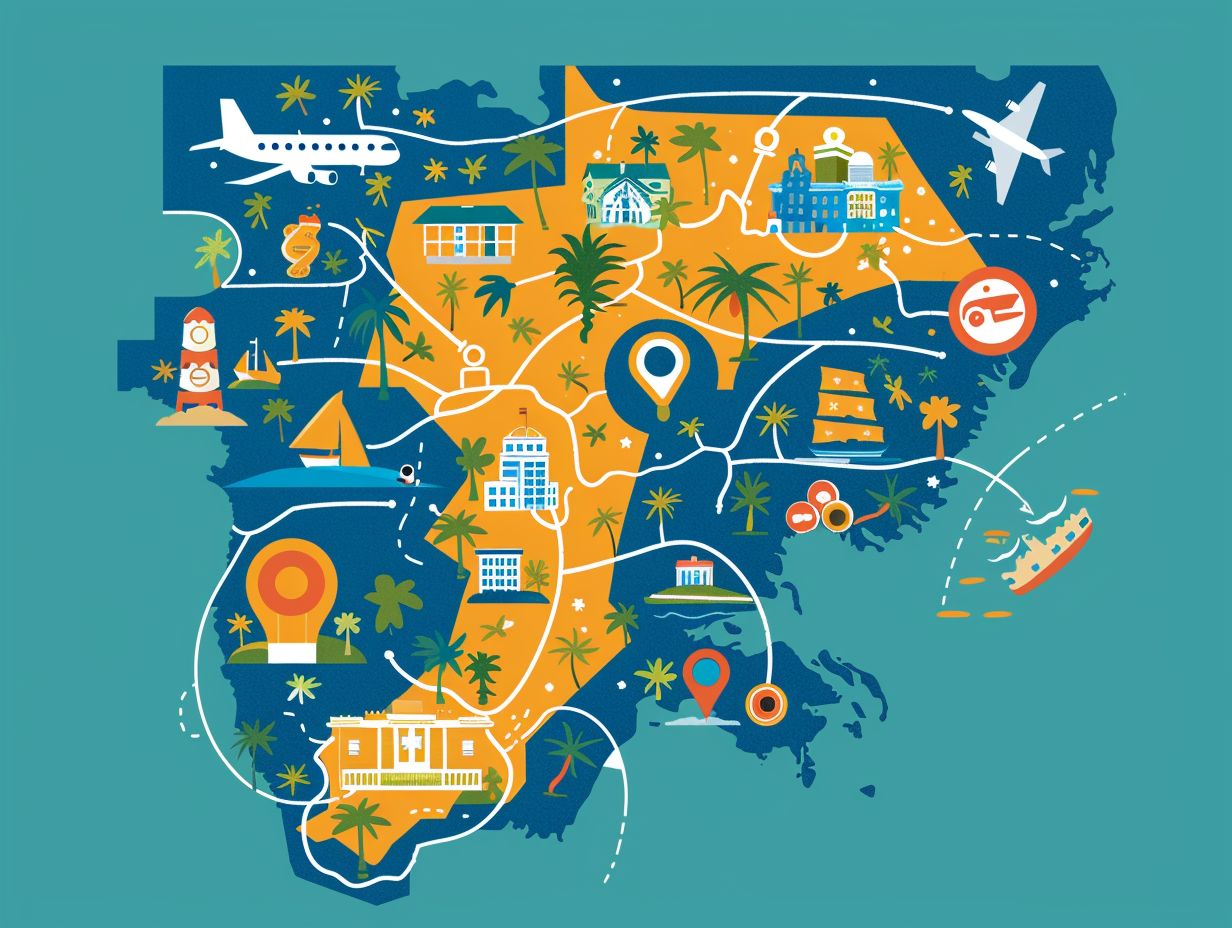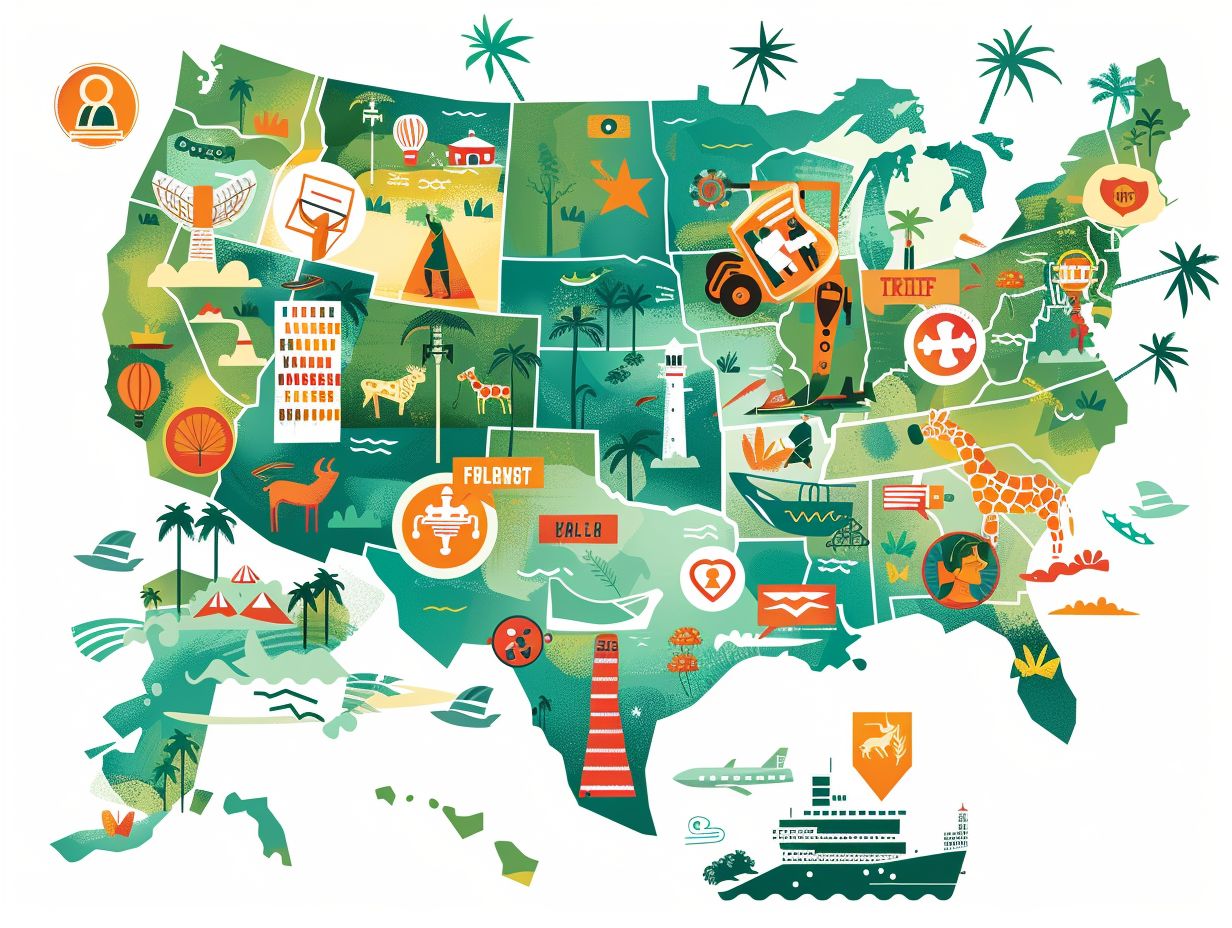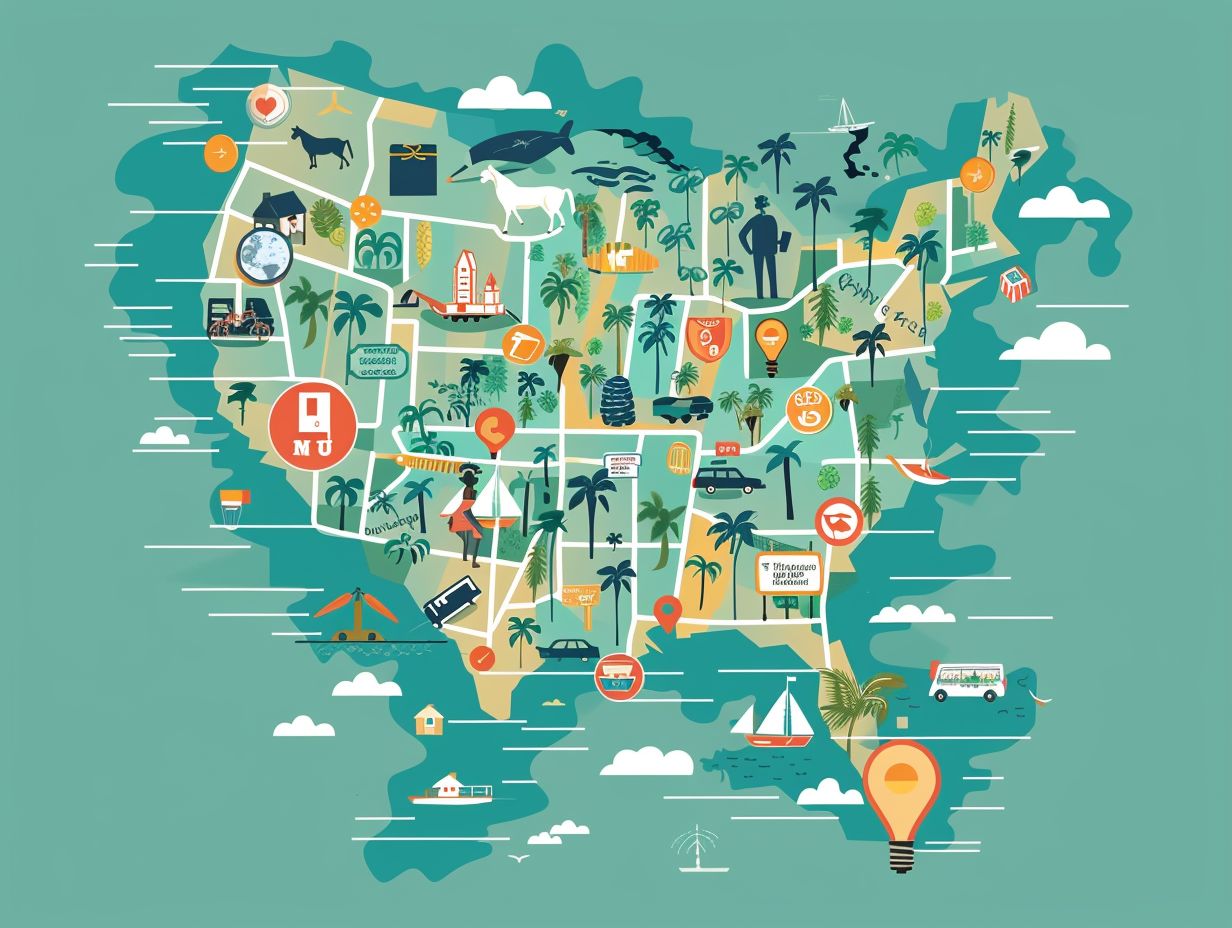Are you an immigrant in Florida looking to access public benefits but feeling overwhelmed by the process?
This article will guide you through the ins and outs of navigating the public benefits system in the Sunshine State.
From understanding the different types of public benefits available to immigrants, to learning about eligibility requirements and application procedures, we’ve got you covered.
Discover key agencies involved, common challenges faced, and essential tips for successfully accessing public benefits in Florida.
Key Takeaways:
- Understand the different types of public benefits available in Florida for immigrants
- Know the eligibility requirements and potential barriers for immigrants to receive public benefits
- Learn how to navigate the application process and key agencies involved in accessing public benefits in Florida
What Are Public Benefits?
Public benefits encompass different types of aid offered by government agencies and nonprofit organizations to help individuals and families, including immigrants in South Florida. The goal of these benefits is to encourage access to health services, financial self-sufficiency, and essential resources like public transportation.
What Are the Different Types of Public Benefits?
Public benefits encompass a variety of assistance programs, including cash aid like SSI and TANF, healthcare services such as Medicaid and CHIP, and nutrition assistance programs like SNAP and WIC.
These public benefits are essential for providing vital support to individuals and families in need. Cash assistance programs like SSI (Supplemental Security Income) and TANF (Temporary Assistance for Needy Families) offer financial aid to those who meet specific income and asset requirements.
Healthcare services like Medicaid and CHIP (Children’s Health Insurance Program) provide medical coverage to eligible individuals, including low-income families, pregnant women, children, and people with disabilities. Nutrition assistance programs such as SNAP (Supplemental Nutrition Assistance Program) and WIC (Women, Infants, and Children) ensure access to nutritious food, promoting better health outcomes.
These programs are crucial in promoting the well-being of immigrants and other eligible residents by addressing their basic needs and fostering greater economic stability.
Who Is Eligible for Public Benefits in Florida?
Eligibility for public benefits in Florida is determined by various factors, including immigration status. Lawful permanent residents, green card holders, asylum seekers, Cuban/Haitian entrants, and victims of trafficking often meet the criteria.
Refugee resettlement agencies have a significant role in helping eligible immigrants navigate the complex process of accessing public benefits. These agencies offer guidance on necessary documentation and link immigrants to resources to ensure accurate and timely submission of their applications.
It is crucial for immigrants to maintain a legal immigration status to retain eligibility for these benefits, as unauthorized individuals may encounter challenges or restrictions. Having a reliable support system, like refugee resettlement agencies, can simplify the process and assist immigrants in integrating more successfully into their new communities.
What Are the Requirements for Immigrants to Receive Public Benefits in Florida?
For access public benefits in Florida, immigrants must fulfill certain criteria, such as passing a public charge determination, submitting a precise immigration application, and frequently seeking aid from legal services offered by organizations like FANM, Americans for Immigrant Justice, and Catholic Legal Services.
What Is the Five-Year Bar?
The five-year bar is a rule that mandates lawful permanent residents and green card holders to wait for five years before becoming eligible for specific public benefits like Medicaid.
During this waiting period, immigrants are required to establish a financial foundation and demonstrate self-sufficiency before accessing government assistance. The purpose of the five-year bar is to ensure that immigrants contribute to society and lessen the strain on public resources.
There are exceptions to this rule for certain immigrant groups, such as refugees, asylees, and victims of human trafficking, who may qualify for benefits sooner. These exceptions consider the unique circumstances and vulnerabilities of these individuals, acknowledging the necessity for immediate support in certain situations.
What Is the Seven-Year Bar?
The seven-year bar is a rule that pertains to individuals with refugee status, restricting their access to specific public benefits like Refugee Medical Assistance for a duration of seven years.
This restriction presents a notable challenge for refugees who depend on these benefits for crucial healthcare services, help with employment, language instruction, and other critical assistance.
Refugee resettlement agencies are instrumental in aiding refugees in understanding and managing these limitations by offering advice, linking them with resources, and advocating on their behalf. These agencies collaborate closely with refugees to devise sustainable plans that ensure they can access necessary services while adhering to the constraints imposed by the seven-year bar.
What Is the Sponsor Deeming Rule?
The sponsor deeming rule takes into account the sponsor’s income and resources to determine an immigrant’s eligibility for public benefits, impacting the public charge assessment and the applicant’s financial self-sufficiency.
By considering the sponsor’s financial situation, this rule seeks to ensure that immigrants entering the country have enough support to prevent heavy dependence on public assistance.
Sponsors play a crucial role in this procedure, as their income and resources are utilized to evaluate the immigrant’s potential to become a public charge. It is crucial for sponsors to accurately disclose their financial status during the immigration application process to prevent any discrepancies or delays in benefits eligibility assessment.
Failure to provide accurate information can lead to negative consequences for both the sponsor and the immigrant seeking assistance.
How to Apply for Public Benefits in Florida as an Immigrant
Applying for public benefits in Florida as an immigrant typically requires submitting an immigration application to USCIS or DHS, often with the help of legal services and nonprofit organizations specializing in assisting the immigrant community.
What Documents Do You Need to Provide?
For apply for public benefits, individuals must provide documentation verifying their immigration status, such as a green card or immigration application receipt, as well as other personal identification and financial information.
These specific documents are essential as they demonstrate the individual’s eligibility for the benefits they are seeking. Plus proof of immigration status and personal identification like a driver’s license or passport, applicants may also be asked to submit financial records such as pay stubs, tax returns, or bank statements.
Legal services and nonprofit organizations can assist individuals in gathering, organizing, and submitting these required documents accurately and on time, facilitating a smoother application process.
What Happens After You Apply?
After applying for public benefits, the application goes through a review process that involves a public charge determination to evaluate eligibility for health services and other assistance, overseen by various government agencies.
This determination is significant as it assesses the potential reliance on government aid. Government agencies, such as the Department of Homeland Security and the Department of State, have a critical role in reviewing the application.
After submitting the application, additional documentation or interviews may be necessary to support eligibility. The timeframe for receiving benefits can vary based on the complexity of the case and the specific benefits applied for. It is essential to stay updated and respond promptly to any requests during the process.
Navigating the Public Benefits System in Florida
Navigating the public benefits system in Florida may be complex, but nonprofit organizations and government agencies offer essential support to the immigrant community to help them access the benefits they are entitled to.
What Are the Key Agencies Involved?
Key agencies involved in the public benefits system include the Office of Refugee Resettlement, the Florida Department of Health, and the Miami-Dade County Office of New Americans. Each agency plays a crucial role in facilitating access to services.
The Office of Refugee Resettlement focuses on assisting refugees and other eligible individuals in achieving economic self-sufficiency through various programs and services.
On the other hand, the Florida Department of Health oversees health-related public benefits, ensuring that residents have access to healthcare services and resources. The Miami-Dade County Office of New Americans specifically caters to the immigrant community by offering integration services, language assistance, and guidance on accessing public benefits.
By collaborating and coordinating efforts, these agencies work together to streamline the process and ensure that immigrants receive the support they need to thrive in their new environment.
What Are the Common Challenges Faced by Immigrants in Accessing Public Benefits?
Immigrants often encounter common challenges when trying to access public benefits. These challenges include cultural lifestyle differences, language barriers, a complicated application process, and sometimes discrimination. Due to these obstacles, having legal representation is essential for navigating the system effectively.
The difficulties immigrants face are often rooted in a lack of understanding about the eligibility criteria, the complexities of various benefit programs, and the required documentation for applications. Navigating through unfamiliar bureaucratic systems can be overwhelming, and misunderstandings or misinterpretations can result in delays or denials of crucial support.
Immigrants may struggle to comprehend the details of paperwork, especially if it is in a different language or contains complex legal jargon. Without proper guidance, there is a risk of making errors that could impact their applications negatively.
Legal experts and support services play a critical role in providing accurate information, helping with form completion, and advocating for immigrants to protect their rights and ensure they receive the benefits they are entitled to.
Frequently Asked Questions
What are the public benefits available for immigrants in Florida?
There are various public benefits available for immigrants in Florida, including healthcare, education, and financial assistance programs. These benefits are meant to support and assist immigrants in their transition to life in the United States.
How do I know if I am eligible for public benefits as an immigrant in Florida?
Eligibility for public benefits as an immigrant in Florida depends on your immigration status, duration of residence, and other factors. It is best to consult with an immigration attorney or a local government agency to determine your eligibility.
Can immigrants receive healthcare benefits in Florida?
Yes, immigrants in Florida can receive healthcare benefits through programs such as Medicaid and the Children’s Health Insurance Program (CHIP). Eligibility for these programs may vary based on immigration status and other factors.
Are there financial assistance programs available for immigrants in Florida?
Yes, there are financial assistance programs available for immigrants in Florida, such as Temporary Assistance for Needy Families (TANF) and Supplemental Nutrition Assistance Program (SNAP). Eligibility for these programs may depend on income level and other factors.
How can I apply for public benefits as an immigrant in Florida?
You can apply for public benefits as an immigrant in Florida by visiting your local government agency or applying online. It is important to have all necessary documents, such as proof of immigration status, when applying.
Is there any public benefits specifically for immigrant children in Florida?
Yes, there are public benefits specifically for immigrant children in Florida, such as the School Breakfast Program and the National School Lunch Program. These programs provide free or reduced-cost meals for eligible children in schools.



























Rate this article:
Average rating 0 / 5. Vote count: 0
No votes so far! Be the first to rate this post.
No Comments yet!